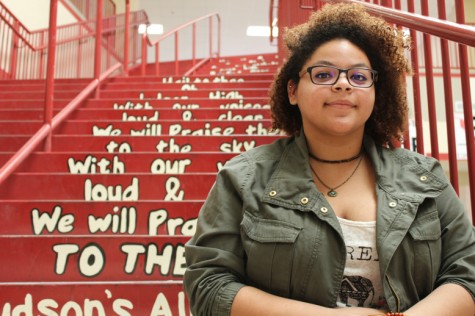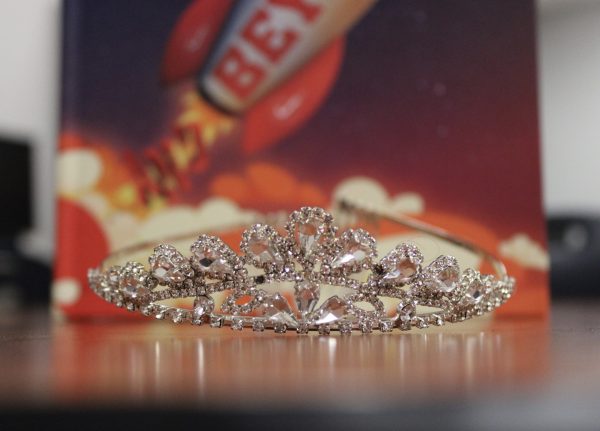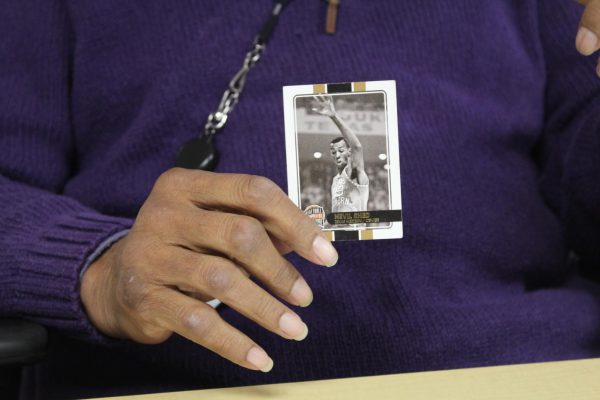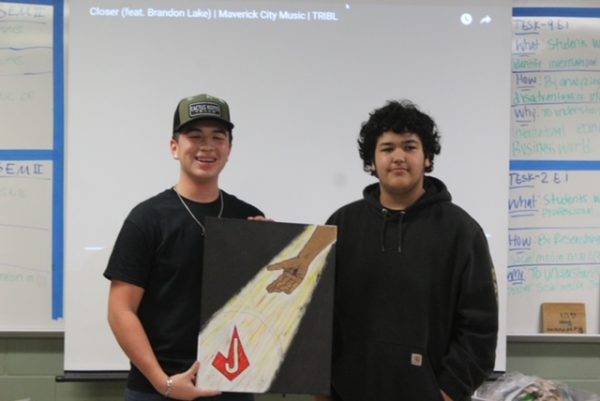Sophomore Rylee Dusenberry Survives Cancer
Photo By: Kiela Ramos
When you’re 7 years old, it seems as though you have your whole life in front of you. You’re full of hope, dreams and wishes. It was no different for Rylee Dusenberry. But instead of playing with friends, riding her bike around the neighborhood, Dusenberry hoped for a better future without cancer.
She dreamed of living a normal childhood where she was free to run and be carefree. She wished for the pain to end and the treatments to be over.
While her peers were learning multiplication in elementary school, Dusenberry was getting chemotherapy. While her friends were enjoying their free time at recess, Rylee was bedridden, unable to move because of recent surgeries.
“I got to see everyone around me doing normal things and I remember thinking that I should be able to do these things, so why couldn’t I?” Dusenberry said.
At the age of seven, Dusenberry was diagnosed with Ewing’s sarcoma. Despite being a common cancer found in children, Ewing’s sarcoma is also a rare bone cancer. It is a cancer that starts in the bones, usually the pelvic, chest, or leg region and can spread anywhere within the body.
“I wasnt really scared when I found out because I was so young and didn’t know what was going on,” Dusenberry said.
Being diagnosed with a rare cancer at a young age, Dusenberry wasn’t fully aware of the dangers of cancer. She didn’t understand the concept of her body rebelling against her and creating cancerous cells or that her life was being threatened because of it. All she knew was the feel of sharp pains and swelling in her body, the way doing simple tasks became more and more tiring as the days progressed. She knew what it felt like to have a vital part of her childhood lost and never being able to get it back. Then one day she knew just how serious her condition was.
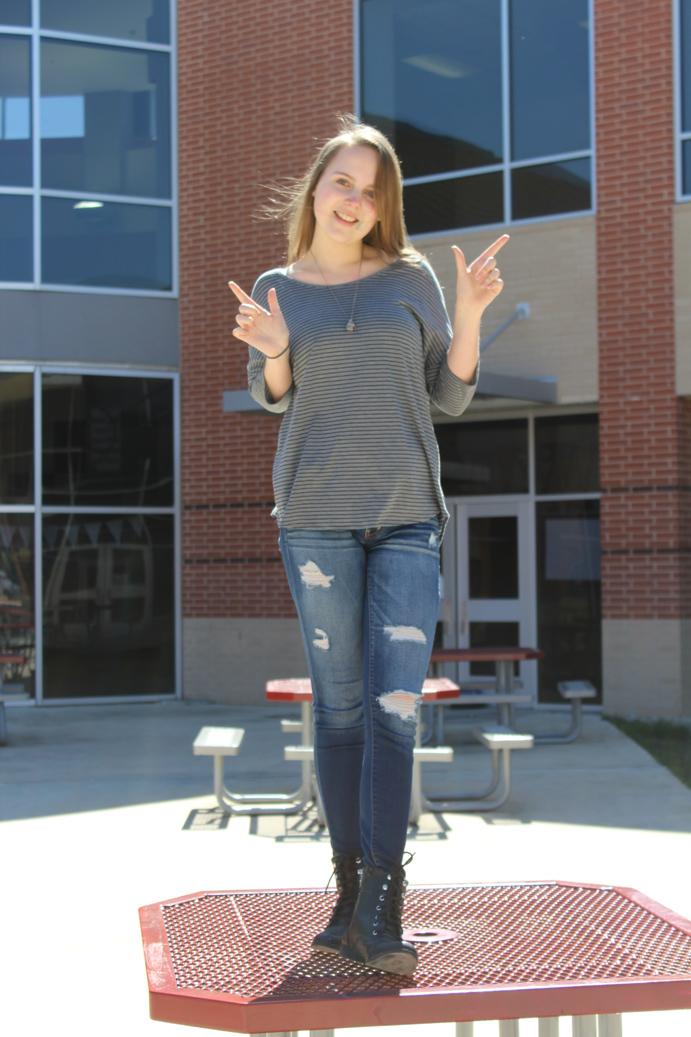 Dusenberry chances for survival when she was first diagnosed was an estimated 60%. At the age of 8, the oncologist gave her alarming news; Dusenberry’s cancer had become metastatic. Ewing’s sarcoma can be split into two stages, localized and metastatic. Having localized Ewing’s sarcoma means the cancer has remained in one area and has not spread. Having metastatic cancer means the cancer has started to spread throughout the body.
Dusenberry chances for survival when she was first diagnosed was an estimated 60%. At the age of 8, the oncologist gave her alarming news; Dusenberry’s cancer had become metastatic. Ewing’s sarcoma can be split into two stages, localized and metastatic. Having localized Ewing’s sarcoma means the cancer has remained in one area and has not spread. Having metastatic cancer means the cancer has started to spread throughout the body.
The survival rate of people that have metastatic Ewing’s sarcoma is slightly less than the survival rate of people that have the localized cancer. But being told that her cancer had started to spread throughout her body and had reached her skull brought her chances of survival down to a grim 20%.
Treatments were various and extensive. Within the walls of Wilford Hall Medical Center is where she underwent many surgeries including a bone transplant that replaced her right humerus, where the cancer resided, with her left fibula, leaving her in a wheelchair. Chemotherapy was also mandatory as a precaution. On top of the multiple surgeries and the chemotherapy, Dusenberry had to get radiation treatment for the cancer in her skull.
When looking back during this time in her life, Dusenberry mentioned the pang in her heart that she feels for her older sister. Because of the cancer, her mom catered to her needs more than anything, creating the feeling of guilt and remorse for Dusenberry. Her older sister lost the attention that many children desperately seek.
“When I got cancer, I wasn’t the only one to lose a part of their childhood,” Dusenberry said.
Dusenberry’s has always had the support of family and friends, so the feeling of loneliness never took hold. But the sense of loneliness was replaced by the feeling of anger and betrayal.
“I never really felt alone, but I couldn’t stand being alone,” Dusenberry said. “When I was in for my treatments I always needed someone there with me or I would get scared and impatient. But during treatments, I became angrier, because I felt betrayed by my own body, and felt that I lost my childhood.”
Rylee says she can remember a specific moment, just after her bone transplant surgery, when she truly learned the lesson of how unfair life could be. It wasn’t a dramatic event, or a cinematic moment. It was a gradual realization that had suddenly dawned on her. Even though getting cancer wasn’t her fault and there was nothing she could have done to prevent it, Dusenberry couldn’t help but feel as though the world was pitted against her. Her one question at the time was why. Why was she the one to get cancer? Why did she have to become another statistic?
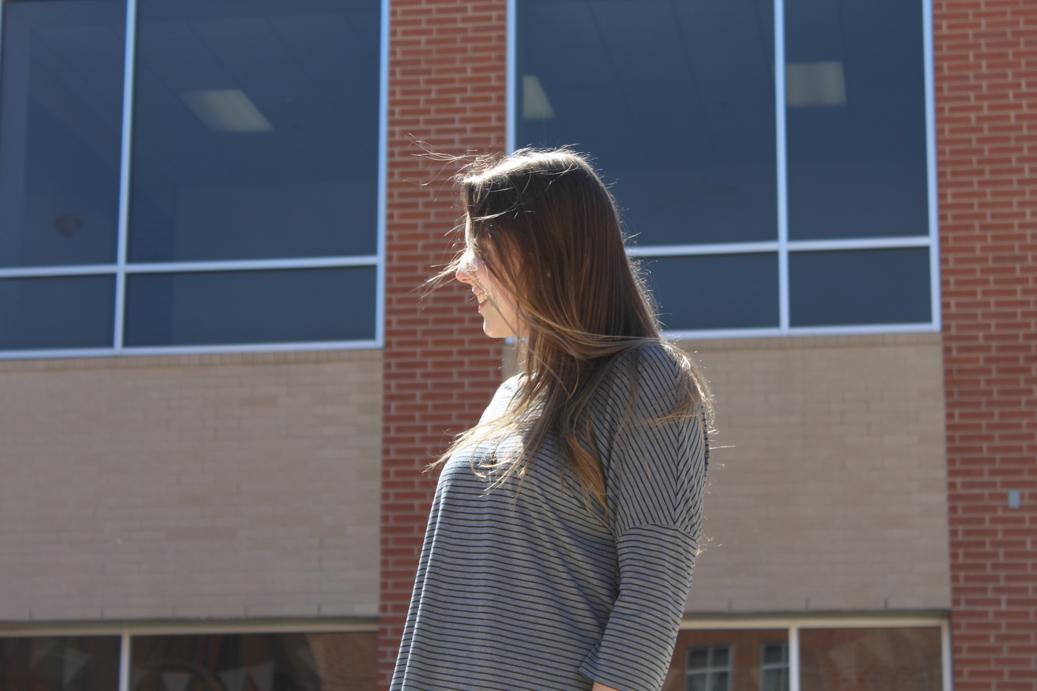 On December 31, 2008, Rylee was officially deemed cancer free, but her journey wasn’t over just yet. Although she was over the hill, she still had to make her way down to normal. She had to do physical therapy, regular checkups, and chemotherapy. And the radiation treatment she had for the cancer in her skull had a lasting impact leaving her with a bald spot on her head.
On December 31, 2008, Rylee was officially deemed cancer free, but her journey wasn’t over just yet. Although she was over the hill, she still had to make her way down to normal. She had to do physical therapy, regular checkups, and chemotherapy. And the radiation treatment she had for the cancer in her skull had a lasting impact leaving her with a bald spot on her head.
Rylee has now been cancer free for about seven years. Having cancer has shaped who she has become today. She used to wear wigs and hats to hide her bald spot. Now, she’s no longer self-conscience and embraces her uniqueness, letting people know she’s a survivor. She has also been able to mature, while also maintain her adolescent demeanor, due to her experience.
“Having cancer has given me the chance of accomplishing something as simple as being able to get back out there and do normal things again,” Dusenberry said. “Surviving cancer wasn’t the end of a gruesome story. It was the beginning of a beautiful one.”

